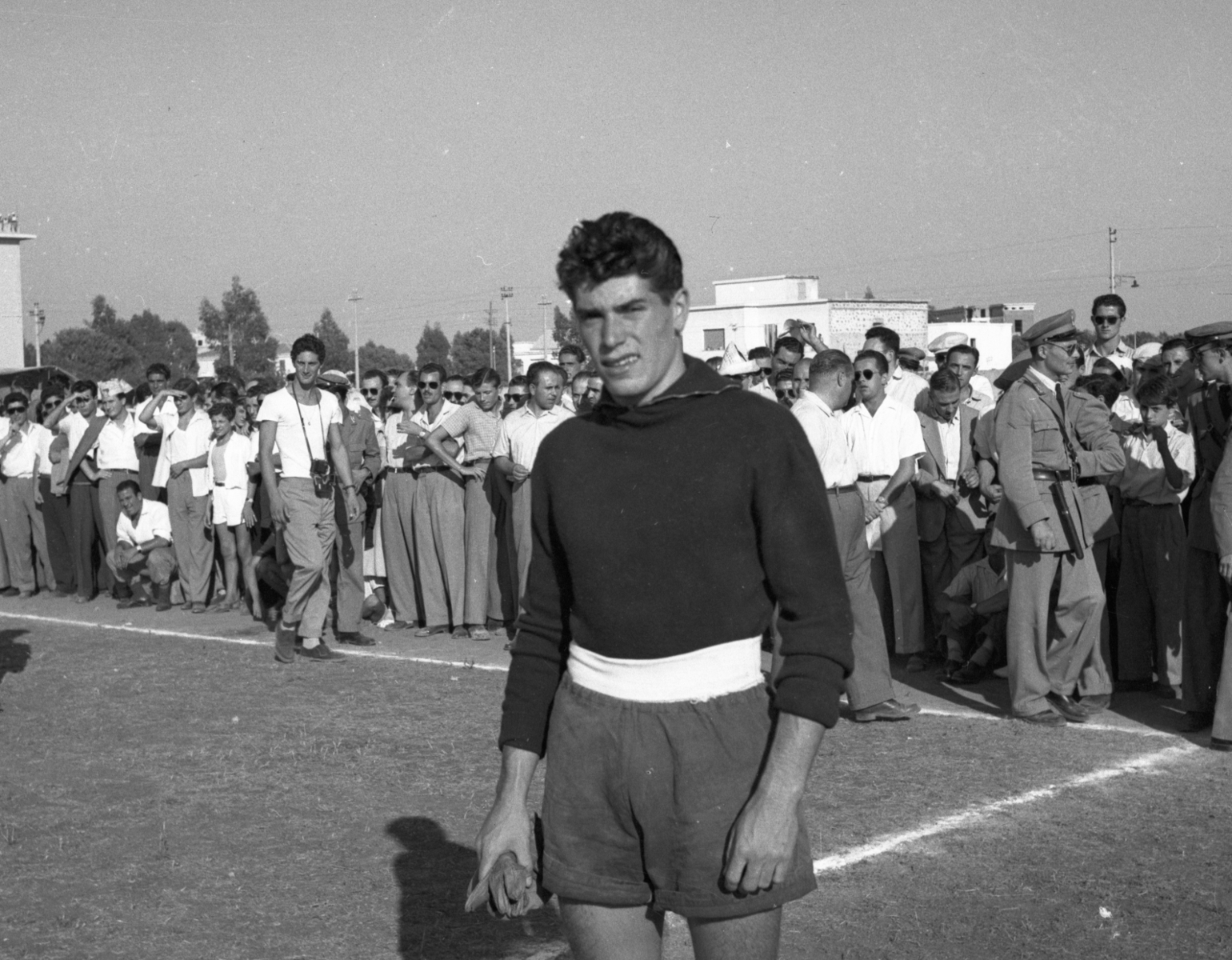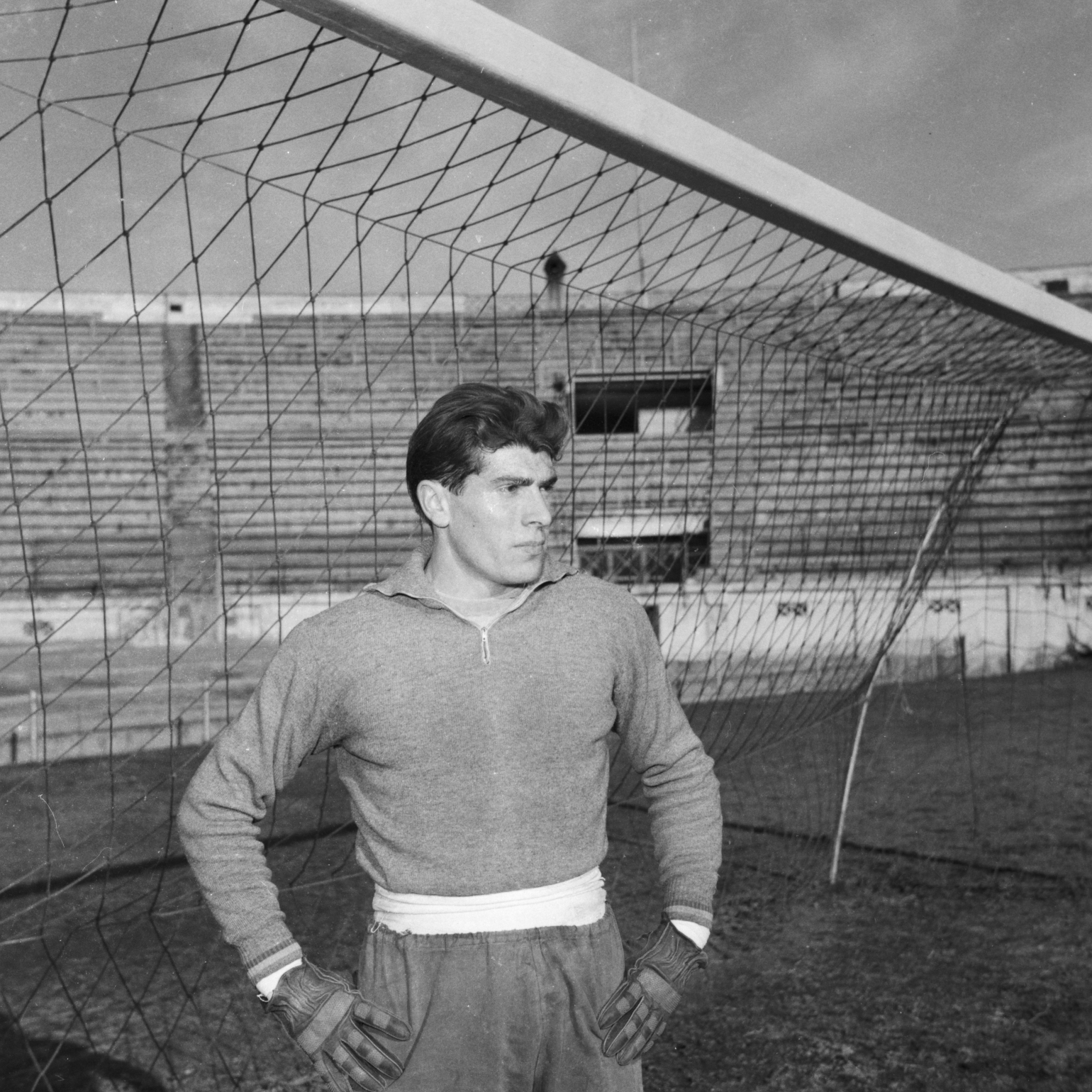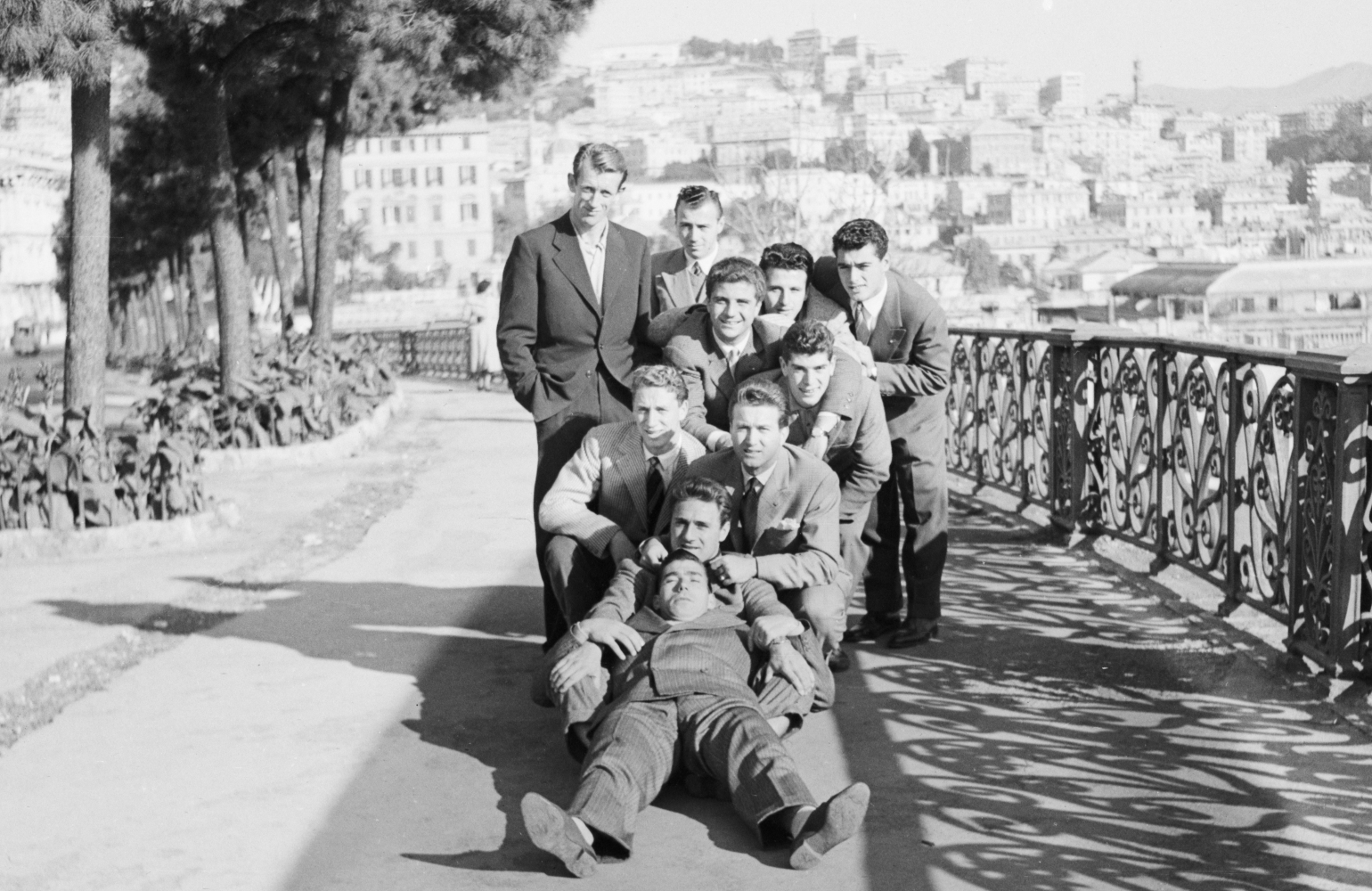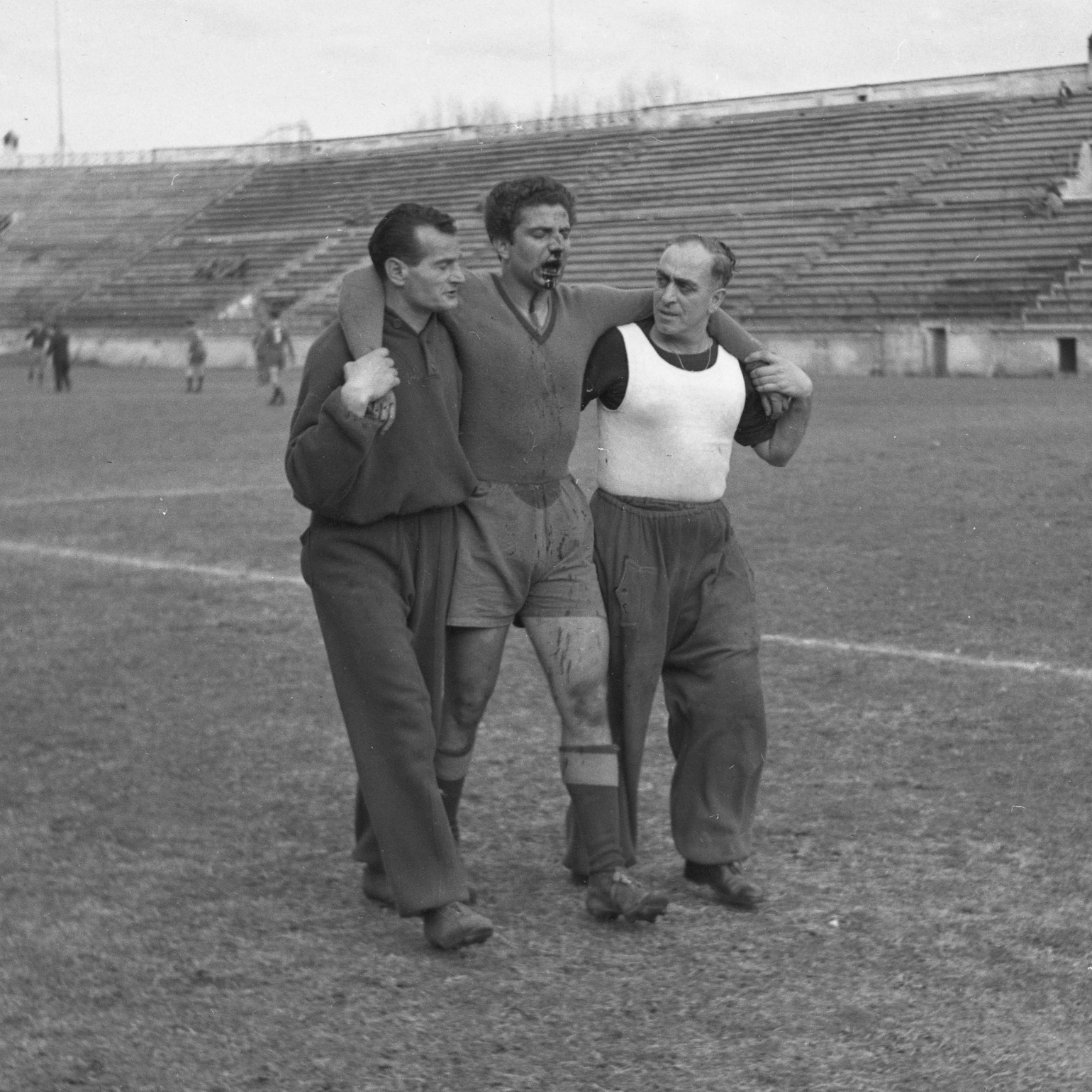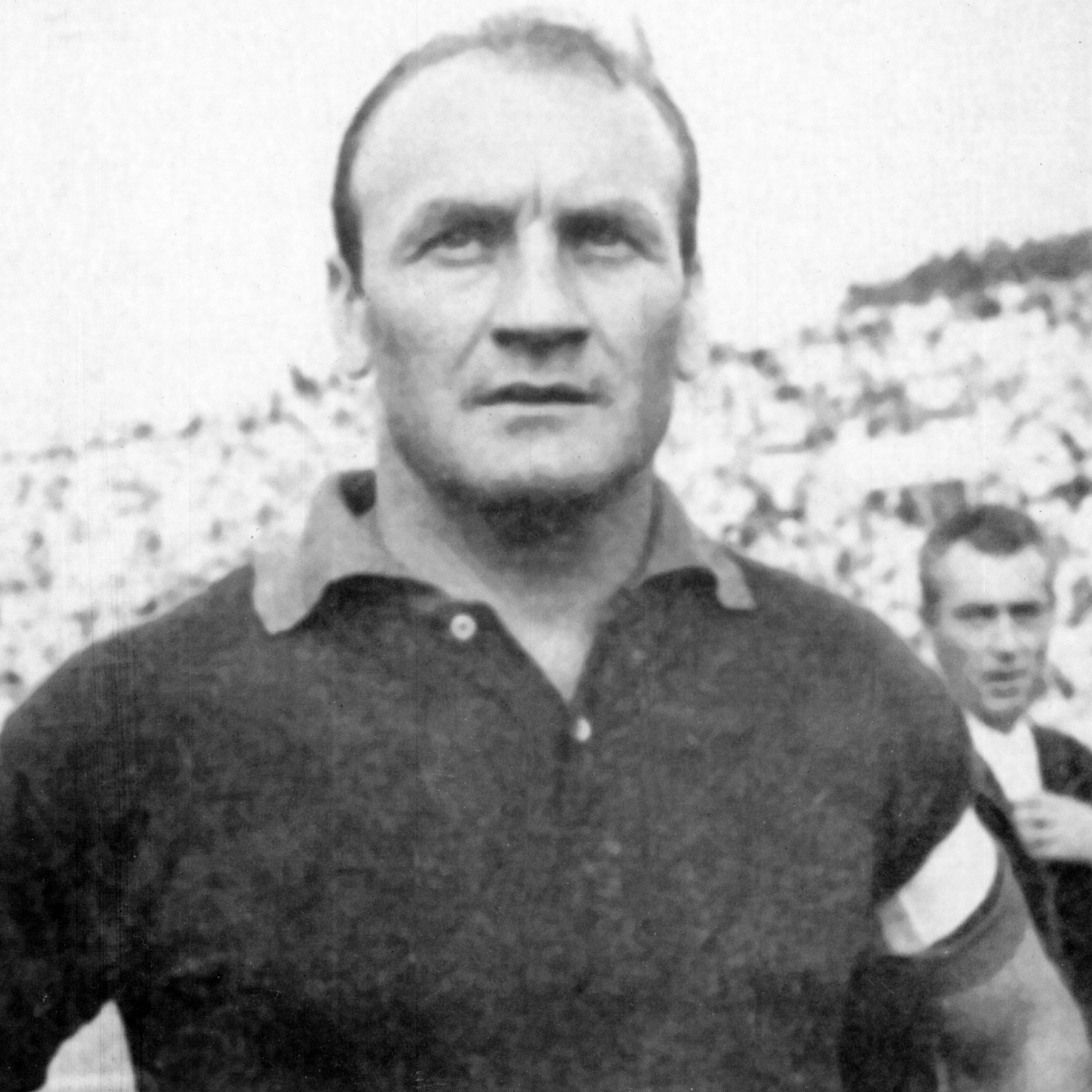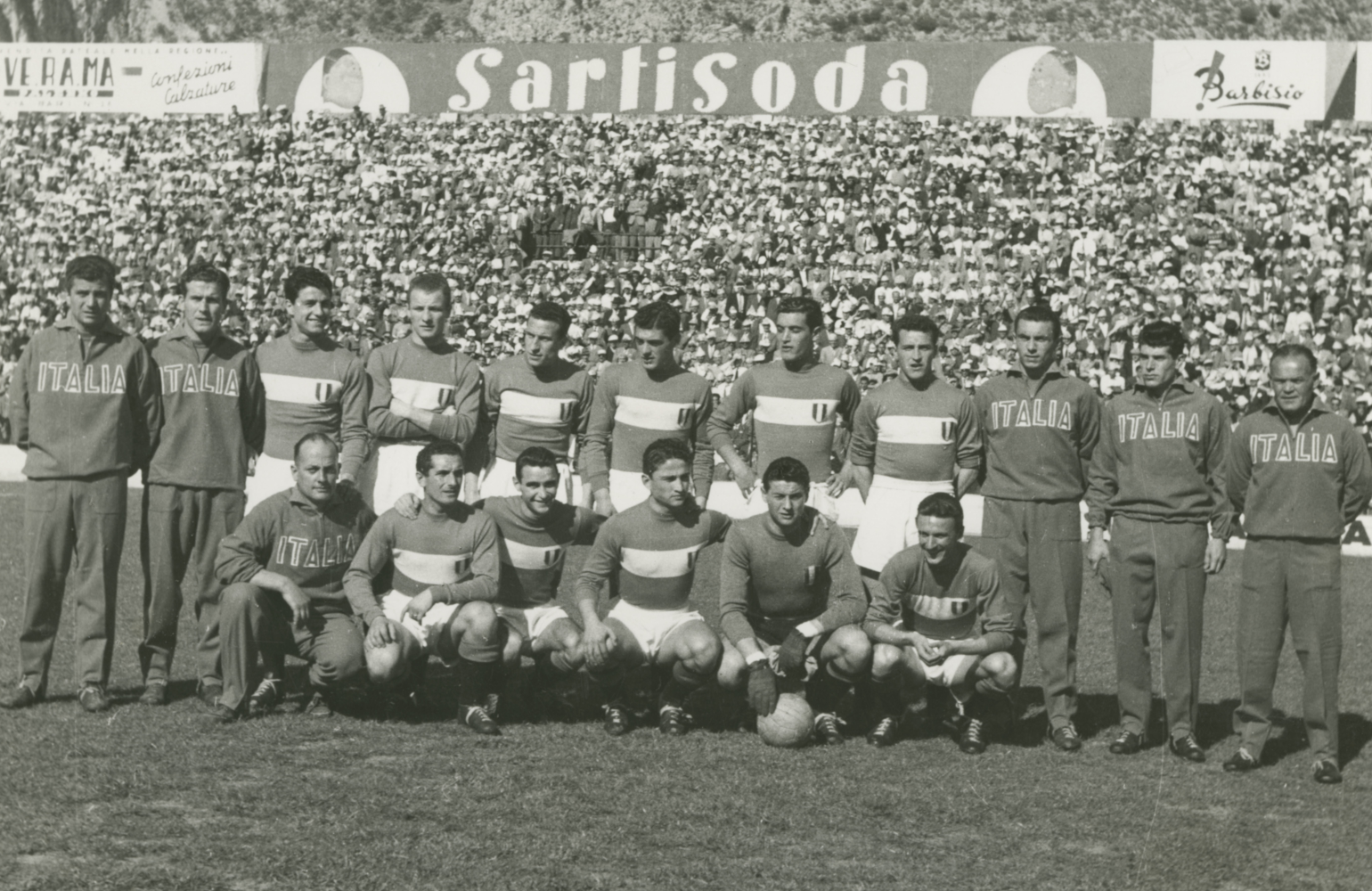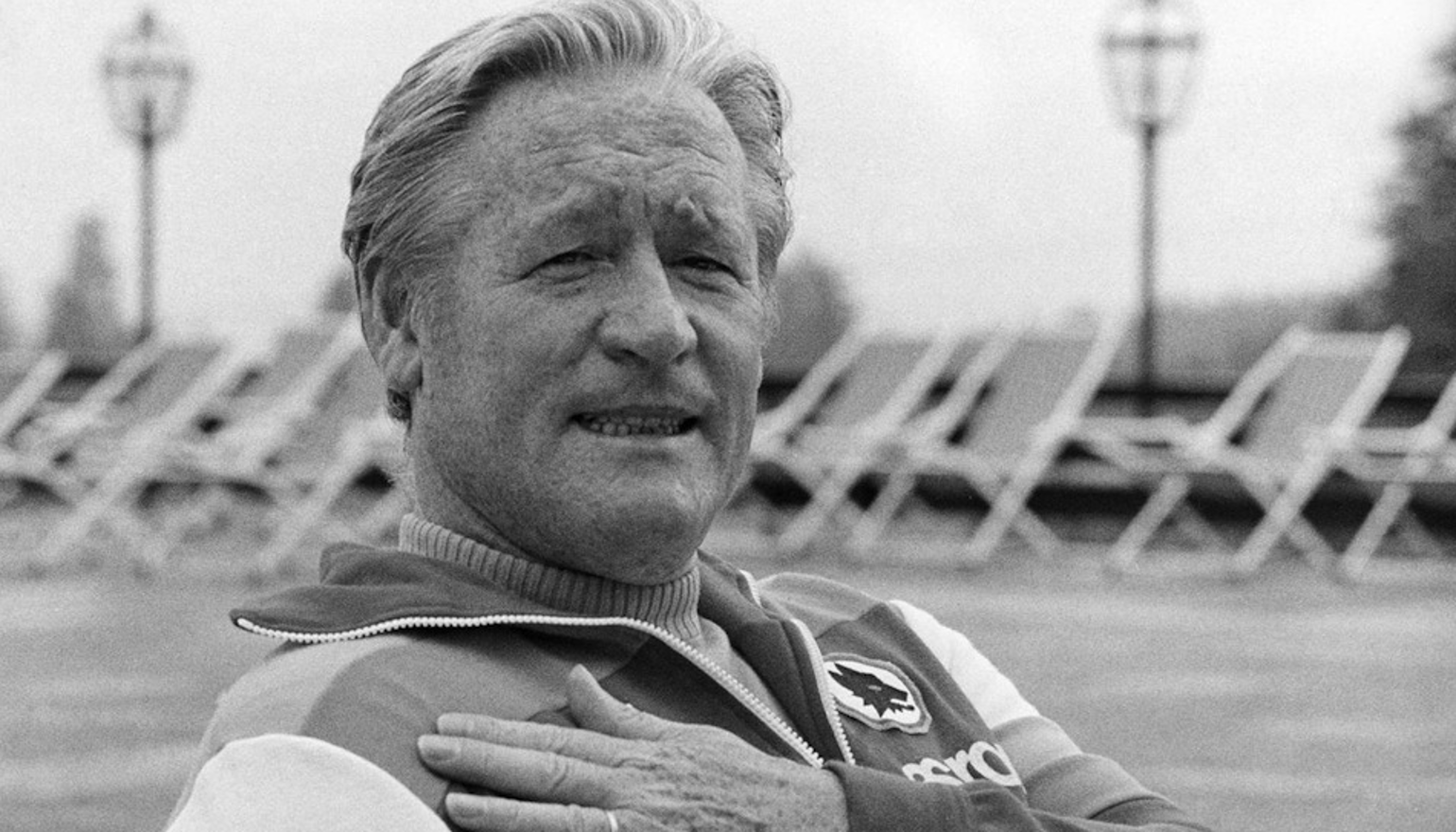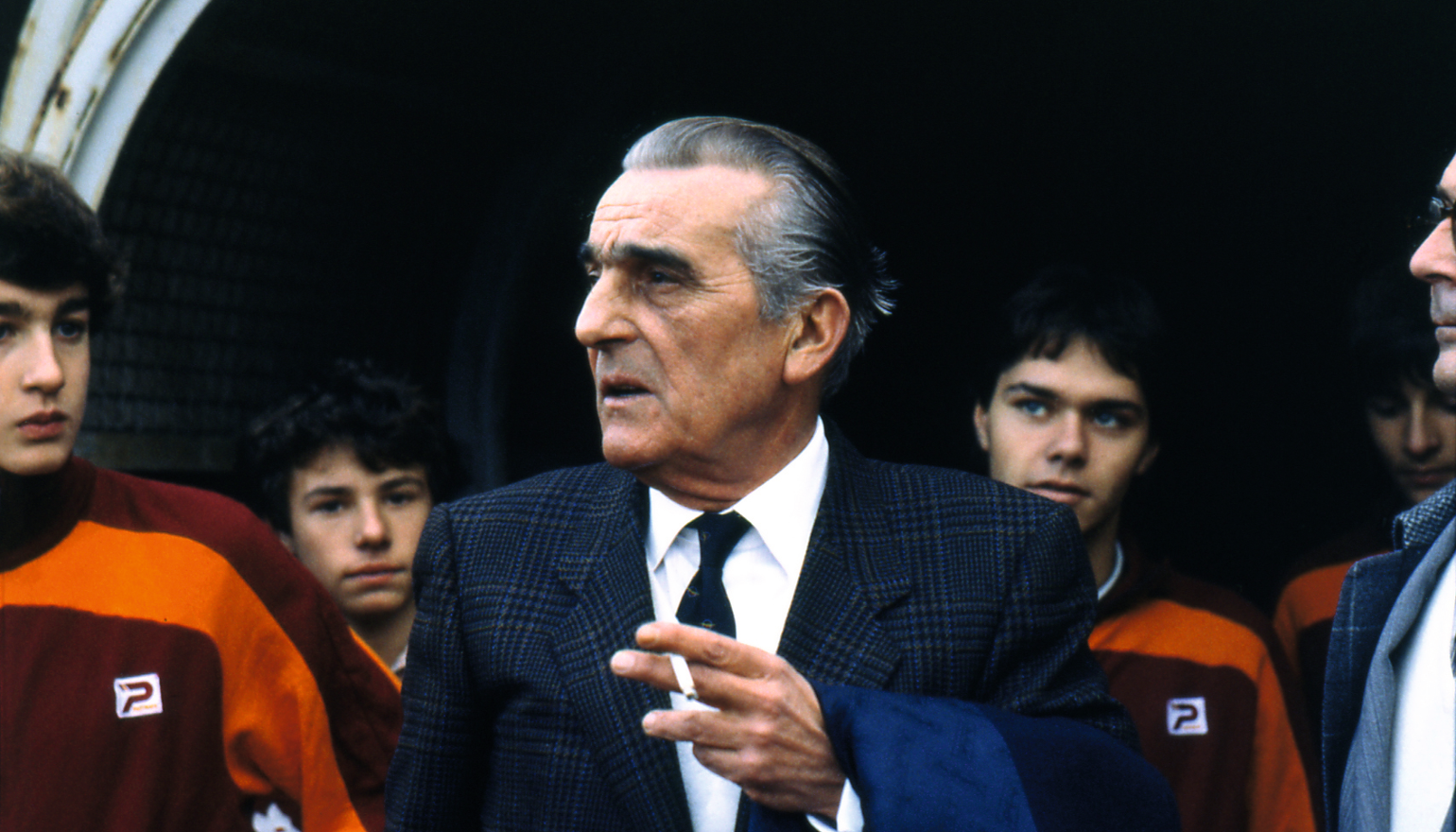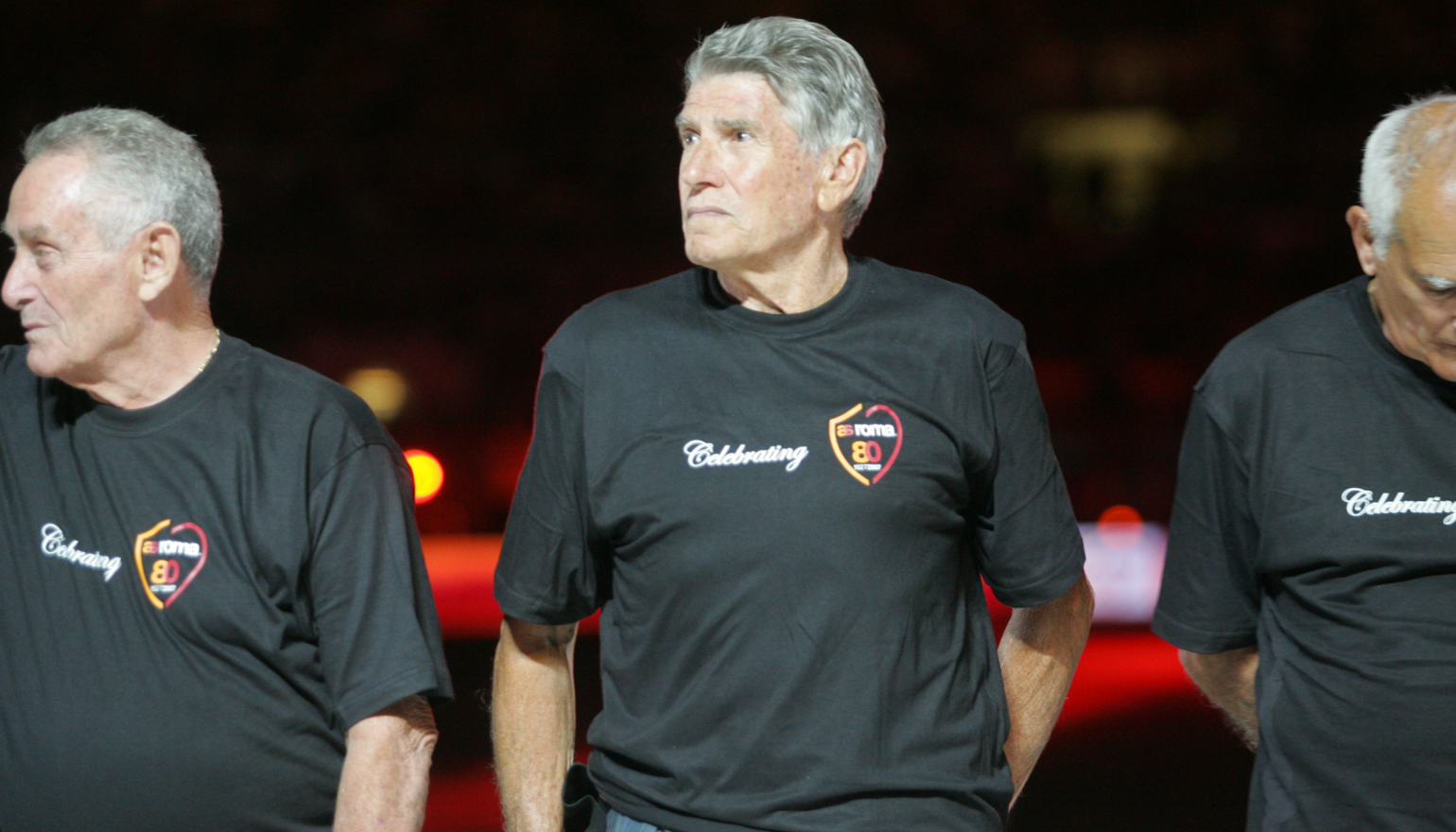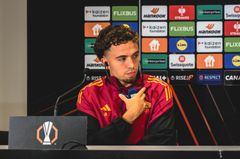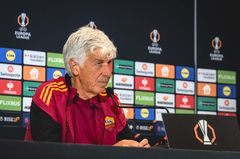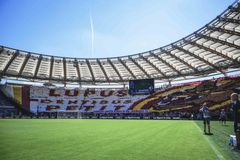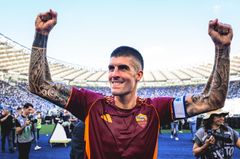

Luciano Tessari has history with Roma. In the '50s, he played in goal for Roma. In 1970, he returned briefly as manager and then in the '80s, he was assistant to Nils Liedholm as the Giallorossi won a second Scudetto. This is his story…
“Good times, they were. Look at them there – they were all good lads. We were a good side, but sadly we dropped down to Serie B. We were too afraid. We didn’t score many goals and we probably conceded too many. We had no balance.”
“Angelino Ceretti was also a barber. We were quite a close-knit group away from the pitch and that was important. During matches, however, at times the defensive midfielders would argue with the attacking midfielders and the defenders.
That should never happen within a team. A football team needs to have a lot of love and enjoy playing. It needs to put the work in, train hard. You need to take it seriously or you won’t get far in football.”
“We played at the Stadio Torino in the early years. The fans back then were different. Regardless of the result, we would come off the pitch and go arm in arm with the fans right down to Piazza del Popolo – talking, laughing, telling stories. It was another world. Now you can’t even get out of the dressing rooms. We were on good terms with everyone and the fans would help us when we lost. It was not easy for a young lad to deal with the demands of the league.”
“That’s Knut Nordahl and my great friend Tommaso Maestrelli, together with Aldo Donati, Swedish winger Stig Sundqvist and Sune Andersson, the Swedish defensive midfielder. Armando Tre Re was the central defender, Giancarlo Bacci and Adriano Zecca up front. We were a good side and could have achieved more than we did but there was always pressure from the press – not from the fans. We were never whistled or booed. We suffered more than them.”
“He was a diamond, Carlo Galli. He used to live above me – we used to have a house with nine players living there all together but eventually it was just us two left. This was a match against Palermo. He was a great player, there aren’t many like him anymore. He was so versatile – he would dance around the field, had a great pair of feet and often scored some really acrobatic goals.”
“That’s Alfredo Foni, a good coach who took his job seriously. He played for Italy in the 1930s and ‘40s. He really helped us young players. He was always there for the team, but not even he could do much for us. A team gives what it can and sometimes there’s no point talking about coaches not being up to it or not helping.
Most of the time it’s the players’ fault. The players that get an education are the lucky ones – they get to understand people, not just football. If you can educate people in football then you can build great teams.”
“The goalkeeper has the toughest job of them all. He's always by himself out there, protecting the mother's virginity and despairing when the goal is violated. He's the last bastion defending the team. I used to talk to all the players: 'Take a few steps right, a few steps left, don't drop back.'
And when I conceded my team-mates would say: 'What a goal to let in!' You have to be tough with yourself or you'll go nowhere in football. It might seem like an easy job but it's one of the hardest things there is. Doing a job with your feet is not easy.”
“This is another team from the 1950s. They were good lads. We weren't all that successful but we always fought hard. We obtained some good results but nothing exceptional.”
“That's Guido Masetti on the left – he's from Verona like me. He was a great goalkeeper, one of the best of all time. That's Giancarlo Bacci. And that there is Angelino Ceretti. He was a masseur and he would have a go at you if your shirt fell on the floor in the dressing room. I looked up to him like a father.”
“[Giacomo Losi ] Nino was massive – not in height, he wasn't much more than 1.70 metres but he could beat John Charles in the air. How was that possible? He just did it. He would nip in there first and could jump higher than anyone – he'd always beat you to it. He never fouled anyone deliberately - the most honest footballer I ever knew in 50 years in the game.”
“That's the national team. I'd almost forgotten I was in that! Everyone said I was the best in training but then when it came round to the match, Lorenzo Buffon got picked and I'd be the reserve. You just had to accept it.”
“When we used to play at the Stadio Torino, win or lose we'd go to Piazza del Popolo together, as the Romans did back then. Games against Lazio and Napoli were the stuff of folklore – always a great party.”
“There are no words to describe him. AC Milan's sporting director, Gipo Viani, called me saying they were looking for someone for their youth academy and Gyorgy Sarosi, a Hungarian who had coached me at Roma, had given them my name. That's where I first met Liedholm, one of the world's greatest teachers. He really did care about his players.”
“This was a great, truly magnificent president. Words just can't describe him. I first met him in the 1950s when we played at the Stadio Torino. After the match we'd go to club headquarters, about 100 metres away. He was always there, even in the week. He wanted to know everything about us. He was totally in love with the game. I'd never known anyone like him. He was like a president but he was just a normal fan who became a club official.
One day I met him in Fregene and he said: 'I have this big dream to one day become president of Roma. What do you think? Could I do it?' I thought for a while then gave him an answer that wasn't easy to give but I said, ‘Yes. You've heard lots of things from the players that have filled your heart and all those words you've heard have given you a wealth of experience. So, yes, I think you could be a great president.’
“And one day he did just that. Later, in 1979, I got a call from Mr Pasquali, who was vice president, asking me on behalf of Viola if I could convince Liedholm to come to Roma. We'd just won our tenth Scudetto with AC Milan and Liedholm was a legend in the eyes of the fans and the club's management. I said I'd try but I couldn't promise anything.
“I've never seen anyone so caught in two minds. He thought he would be betraying AC Milan. On the last day – the fifth – I said to him, 'Look, you have AC Milan, Inter, Juve and Torino who are always winning things. It's much easier to win with them. Can you imagine what it would mean to win at Roma?'
“He paused, then placed his hand on my shoulder, a sign I knew meant he was about to make an important decision. He said: 'Lusiano,' for that's what he used to call me, 'let's go to Rome and win the title. That way we can show the whole of Italy that you can win the Scudetto there too.'
“We went looking for lots of players but the defining move was signing Pietro Vierchowod as it allowed us to play Agostino Di Bartolomei in front of the defence. Then we bought Falcao, who everyone thought was a great player. I went to watch him play for his team against Barcelona. In the first half he barely moved at all – he stood still most of the time, as if he was watching the game. At half time I had to check the team sheet to make sure he was the player I'd actually come to see.
“In the second half he moved around a bit more but was still slow. He did two or three things that convinced me though. I wrote a report for Liedholm and as soon as he'd read it he said, 'Are you sure about this?' I'd written: 'I'd say forget about him but someone with that sort of quality is worth having – only a great footballer could only pull off those moves.'
He said: 'Ok, let's get him.'”
“This was a huge celebration for the city. Liedholm and Dino Viola pointed the way, both of them with their fingers pointing upwards as if to say, 'Let's start a new life.' And that's what happened because after that year Roma performed better and were always competitive. It's not easy to win the title. It's easy to talk about doing it but actually pulling it off is another thing altogether. Those lads deserved it though. I wrote a book to try and remember them all - together with Viola and Liedholm. They were the architects who really won a championship.”
“Nettuno [Bruno Conti]… and look at Ago. What fantastic players – it makes you cry to see them. They could do anything and did it all well – they didn’t mess up often. By this point they were a proper team, they helped each other. Everyone helped other, they were good players, but good doesn’t cover it. They had all of the countless attributes footballers need. Footballers have to be complete – they have to have it all, from their technique to their physical strength, character and behaviour.”
“He’s another one who's up there with Agostino now. He was just a kid when we brought him to Milan, one of three brothers from a town near Bari. They all played for Milan and we decided to sign him for Roma because we knew him well. He was a very useful player, but we were without him when we needed him most – the match against Liverpool.”
“Have you ever heard the sound of silence? I have. I heard it in that dressing room and it’s something I still remember now. I can’t explain it. ‘Have we lost or not? Eh, we’ve lost, are we sure we’ve lost?’ But that was that. They scored two more penalties than we did. They had a really flamboyant goalkeeper and he basically won them the match because he put our players off.“Our players weren’t exactly penalty specialists and two thirds of the players that would have taken one were not available. We had taken the game to them, just not got the win."
"In their hearts, those lads didn’t lose that final, they’ll tell you that themselves. We couldn’t find the words to explain why we hadn’t won. We didn’t blame anyone but we didn’t win."
- Luciano Tessari
If we had lifted the cup, it really would have been the springboard for a truly great Roma. If you win the European Cup everything changes – the philosophy of the team and the philosophy of the fans. It’s like winning the lottery.”
“He was an icon. His honesty, his commitment, his way of holding himself in everything he did and with everyone he met. He is an example for all Italian footballers – he was for players in his era and he is especially so for players now. He was loyal, honest, professional and polite.
He had everything and was a role model for all players. He left us ten years after that match against Liverpool. You think it can’t be true… but it happened. Don’t think about it… he’s up in Heaven, if you look up you’ll see him, I’m sure he’s there, next to the boss.”
"Football is joy, guys. It has to be, otherwise what’s the point? The joy of being alive. The joy of being there.”

 Tickets
Tickets
 Shop
Shop













